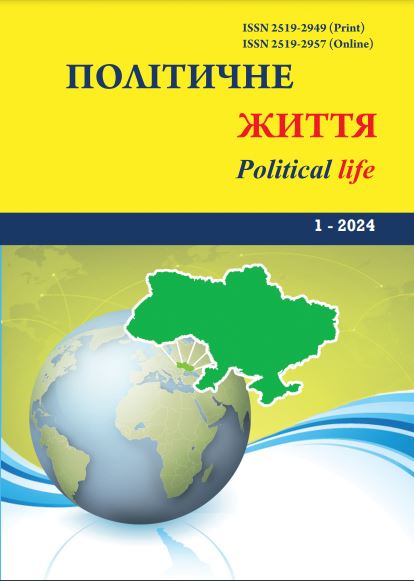Вплив діджиталізації на досягнення суспільно-політичних аспектів глобального сталого розвитку
DOI:
https://doi.org/10.31558/2519-2949.2024.1.21Ключові слова:
діджиталізація; сталий розвиток; Цілі сталого розвитку; інформаційна технологія; глобалізаціяАнотація
Стаття присвячена визначенню особливостей впливу діджиталізації на досягнення суспільно-політичних аспектів глобального сталого розвитку.
У статті розглядається розвиток теорії сталого розвитку від її генези у 1970-их роках попереднього століття до визначених у 2015 році сімнадцяти цілей сталого розвитку. Серед цілей, яким приділяється найбільша увага у дослідженні, можна назвати «Подолання бідності в усіх її проявах», «Забезпечення здорового образу життя», «Якісна освіта», «Гендерна рівність», «Скорочення нерівності», «Сталий розвиток міст та громад», «Мир, справедливість та сильні інститути», «Партнерство заради сталого розвитку».
Визначено, що перетворення концепції сталого розвитку в головну парадигму розвитку сучасного суспільства відбувалося в умовах поступового розвитку діджиталізації. У свою чергу, розвиток діджиталізації певним чином впливає на досягнення цілей сталого розвитку. Діджиталізація в цих умовах набула міцного фундаменту для свого розвитку. Пропозиція цифрового контенту передбачає вирішення цілей сталого розвитку та задоволення користувачів в інтелектуальному продукті, що формує новий світогляд, заснований на принципах розумного споживання, певних обмежень, пошуку шляху гармонізації взаємостосунків між суспільством та навколишнім природним середовищем.
Вплив діджиталізації на досягнення цілей сталого розвитку повинен проявлятися у зміні світогляду населення найменш розвинених країн світу. Цей вплив повинен відбуватися у різних напрямках. Перш за все, необхідно вирішити проблему зростання освітнього рівня розвитку населення країн, що розвиваються. Зв’язок між зростанням чисельності населення та рівнем освіти прямий. Вищому рівню освіти відповідає нижчий коефіцієнт народжуваності. Отже, освіта допоможе населенню країн, що розвиваються, змінити пріоритети свого життя та більш розважливо ставитися до процесу створення сім’ї та продовження роду.
Посилання
Meadows, D.H.; Meadows, D.L.; Randers, J.; Behrens, W.W. The Limits to Growth: A Report for the Club of Rome’s Project on the Predicament of Mankind; Universe Books: New York, NY, USA, 1972.
Forrester, J.W. World Dynamics; Wright-Allen Press: Cambridge, MA, USA, 1971.
What are the Sustainable Development Goals? URL: https://www.undp.org/ukraine/sustainable-development-goals.
Maslow A. H. Motivation and Personality. N. Y.: Harpaer and Row, 1954
Yatsenko O., Zavadska Yu., Khrystenko O., Musiiets T., Aksyonova O. Innovative transformations of the agricultural complex in the context of global challenges of sustainable development. Financial and credit activity problems of theory and practice. 2021. Т. 5. №. 40. 216-224.
Lasuén J. R. Urbanisation and development—the temporal interaction between geographical and sectoral clusters. Urban studies. 1973. Т. 10. №. 2. P. 163-188..
Дубель М. В. Трансформація бізнес-процесу дистрибуції під впливом глобальної діджиталізації: дисертація на здобуття наукового ступеня доктора філософії з галузі знань 29 «Міжнародні відносини» за спеціальністю 292 «Міжнародні економічні відносини». Донецький національний університет імені Василя Стуса. Вінниця, 2022. 250 с

